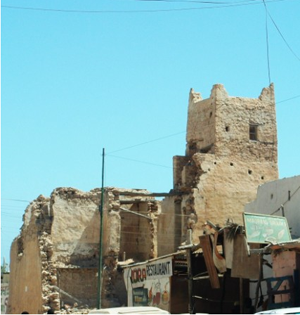Tostan News: 14 Somalia Villages Make History, Collectively Abandoning FGC
/Bosaso town in Puntland, Somalia.
http://bit.ly/h39dX
CELEBRATION NEWS FROM TOSTAN:
GAROWE, PUNTLAND, SOMALIA October 5, 2009 — 14 villages in the Northeast Zone of Somalia – Puntland – made history on Monday as they became the first group of communities in the region to collectively pledge to abandon the practice of female genital cutting (FGC). These communities participated in an empowering three-year education program implemented by the NGO Tostan in collaboration with UNICEF and the Government of Puntland.
The Minister of the Interior of Puntland and the country representative from UNICEF Somalia presided over the ceremony. Also present were the Director General of the Ministry of Women (Puntland), the Director General of Justice (Puntland), the Governor of Puntland, the Mayor of Garowe, representatives of the religious leaders of Puntland, and representatives from women’s organizations in the region.
Approximately 2,000 people attended the declaration held in a soccer stadium in the city of Garowe.
FGC is estimated to be practiced in 28 countries in Africa and can result in serious health complications, including pain, hemorrhage, increased difficulties at child birth, infertility, incontinence, infections, and even death.
14 Somalia Villages Make History Abandoning FGCParticipants read poems and performed a play on the harmful effects of FGC depicting a father who was against practicing FGC on his daughter. Two former cutters from Sunijiif also addressed the large audience and shared why they had decided to stop the practice. The declaration to announce the decision to abandon FGC, signed by participating communities, was read aloud by a woman leader from the village of Burtinle.
Following the declaration, the Puntland Director General for Women spoke in support of this historic decision and a respected religious leader from Garowe cited verses from the Koran and explained that FGC is not an obligation in Islam.
Since January 2007, over 700 participants in 14 communities have been directly involved in the Tostan Community Empowerment Program (CEP) in the Nugaal region of Puntland. The program, which is implemented over a period of 30-months by local facilitators and managed by village-elected Community Management Committees (CMCs), includes modules on democracy, human rights, problem-solving, hygiene, health, literacy, small business management, and microfinance. Teaching methods are participatory and learner-centered, based on positive Somali oral traditions such as poetry, story-telling, theater, and song.
Tostan believes that the reason for the success of the CEP in catalyzing communities to end FGC is its respectful, non-directive, and holistic approach. During the program, communities are empowered to make informed decisions on a range of critical issues, including FGC.
Tostan’s program is inclusive – it recognizes that social norms, such as FGC, involve all members of society, including men, women, adolescents, and elders, as well as religious and traditional leaders. In Somalia the involvement and assistance of respected religious, government, and community leaders was critical to the program’s success.
Over the course of the program, program participants in Puntland organized a comprehensive social mobilization campaign. They traveled to surrounding rural villages where they dialogued with relatives and respected local religious leaders. In collaboration with the Puntland Government’s Ministry of Women and Ministry of Health, they facilitated information sessions at which community members engaged with health agents and religious leaders. On August 5th, 2009, community representatives met in Sunijiif and organized a peaceful march calling for a unified decision to abandon FGC.
Since its founding in 1991, Tostan has implemented the Community Empowerment Program in 10 countries in West and East Africa. In addition to improvements in community health, respect of human rights, understanding of democratic principles, economic growth, literacy, and environmental protection, the program has led to communities pledging to abandon FGC and child/forced marriage in Senegal, Guinea, Burkina Faso, The Gambia, and now Somalia. The particular circumstances in Somalia – namely, the near universal practice of FGC – makes this declaration of abandonment particularly significant.
The villagers from Puntland join a growing movement in which over 4,000 communities have followed a similar process of education and community outreach, followed by a public declaration for the abandonment of this harmful traditional practice. It is anticipated that similar public declarations will be made by neighboring communities in Somaliland in the coming months.
“The Garowe Declaration represents an important step forward for women and girls in Somalia,” said Molly Melching, Executive Director of Tostan. “This is a critical new development in the movement for the abandonment of harmful social practices in Africa, led by community members themselves.”


























































